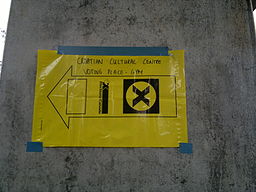You can change the conversation. Chip in to rabble’s donation drive today!
The Conservative government on Tuesday tabled their so-called Fair Elections Act in the House of Commons — 70 weeks late.
Pierre Poilievre, the minister of state for democratic reform, claimed the changes will “increase democracy.” Twenty-four hours later, Poilievre moved on Wednesday to cut off the democratic debate about the bill in the House of Commons.
That’s not the government’s only instance of doubespeak on this file.
Given the Conservatives’ track record of ignoring or circumventing Canada’s electoral law, it’s worth fact-checking the spin, so here are five things you need to know about the legislation.
1. Conservatives did not consult Elections Canada
On the eve of tabling the bill, Poilievre stood up in the House of Commons on Monday to declare that the government had consulted with Chief Electoral Officer Marc Mayrand. “I did meet with the CEO of Elections Canada some time ago and we had a terrific and a very long meeting, at which I listened carefully to all of his ideas,” Poilievre declared. Not so, Mayrand’s office shot back within minutes.
“The chief electoral officer has not been consulted,” Elections Canada spokesman John Enright said. “There’s been no consultation on the contents of the bill.”
Tough start.
2. Elections Canada wanted investigative powers: request denied and then some
Elections Canada, facing an intransigent Conservative Party during its investigations, wanted investigative powers. Instead, the bill is proposing to take away power from the agency by moving the Commissioner of Canada Elections office to within the Director of Public Prosecutions.
“The referee should not be wearing a team jersey,” Poilievre explained, revealing the government views the non-partisan, independent agency as an opponent.
The Ottawa Citizen editorial board says this move should be analyzed through the prism of the agency’s voter suppression investigation into fraudulent robocalls in Guelph (using the Conservative Party database of voters) during the 2011 election.
“With another election coming soon, Canadians still don’t know what really happened in 2011 or who was responsible. Mayrand has said that the Commissioner of Canada Elections should have the power to compel testimony; this bill does not create that.”
3. The bill “closes loopholes to big money”… by raising donation and spending limits?
The legislation proposes to increase the maximum donation limit to $1,500 annually, up from the current $1,200. This back and forth from an Ottawa Citizen editorial writer and a columnist sums it up:

So what will this mean?
Fewer people earning a modest income are able to scrounge together anywhere close to the current limit. And which party is best positioned to take advantage of a higher limit? In the first nine months of 2013, the Conservatives had 10,780 donations worth $200 or more, the Liberals had 7,133, and the NDP had 3,492.
On the spending side, Kady O’Malley of CBC News and the Ottawa Citizen‘s Glen McGregor explain the campaign spending loophole:

4. Make it harder for First Nations, youth and poor people to vote
The bill proposes to tighten up voter identification rules and to eliminate the practice of “vouching” for other voters who lack proper identification at polling stations. It isn’t tough to figure out who is likely not to have government-issued ID: First Nations, students and people who live in poverty.
“One might have thought that when the Conservative government finally got around to reforming election law, it would be to try to prevent the kind of voter suppression and electoral fraud Canada saw in the 2011 election. But when they said they would make it harder to break the rules, it seems they were talking about cracking down on homeless voters, not party bagmen,” the Citizen wrote Tuesday to prove a point.
The bill also proposes to ban Elections Canada advertising to encourage people to vote.
5. Rush and cut off the debate on complex legislation
Procedural and data wizard Alice Funke of Pundits’ Guide sums this up.

This article originally appeared on PressProgress and is reprinted with permission.
PressProgress is a project of the Broadbent Institute and is advancing progressive solutions for Canada with hard-hitting news and analysis. PressProgress cuts through the day’s political spin with facts and an informed point of view. Follow them on twitter @pressprogressca and facebook.
Photo: wikimedia commons



